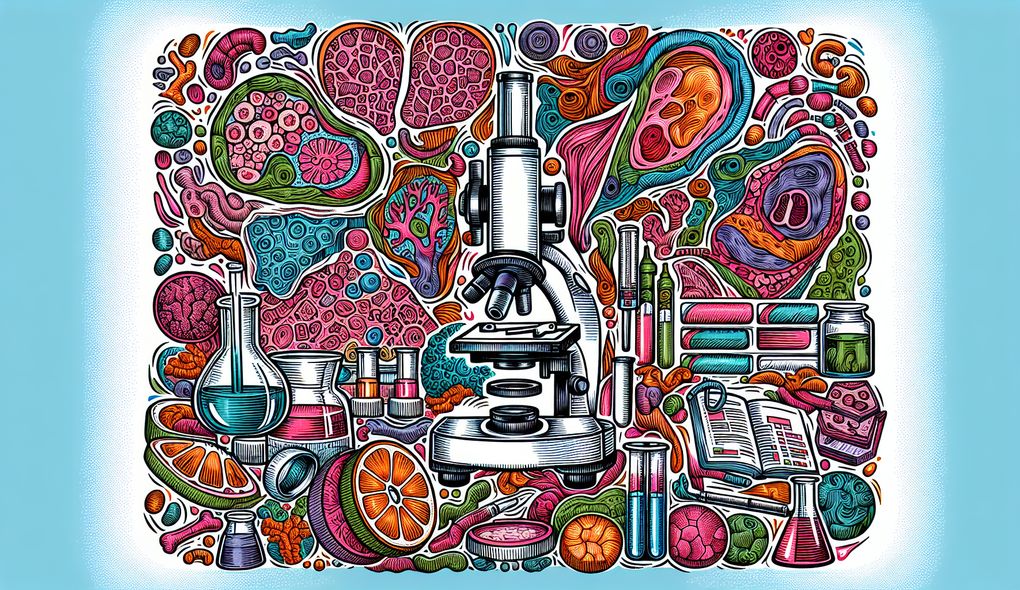Tell us about a time when you had to troubleshoot a technical issue related to laboratory equipment.
INTERMEDIATE LEVEL

Sample answer to the question:
During my time working in a pathology lab, I encountered a technical issue with a microscope. It was not producing clear images, which hindered accurate diagnosis. I approached the problem by first checking the microscope's settings and adjusting the focus and lighting. When that didn't resolve the issue, I consulted the lab's equipment manual and followed the troubleshooting steps. Eventually, I discovered that the lens needed cleaning. I carefully cleaned the lens according to the instructions and the microscope started working perfectly again. This experience taught me the importance of attention to detail and problem-solving skills when dealing with technical issues in a laboratory setting.
Here is a more solid answer:
During my time as a Pathologist, I encountered a technical issue with a fluorescence microscope while analyzing tissue samples. The microscope was not displaying any fluorescence signals, which was crucial for my research. To troubleshoot the issue, I first inspected the microscope's configuration and made sure the correct filters were in place. I also checked the fluorescence bulb and found that it needed replacement. I promptly contacted the laboratory equipment supplier to request a new bulb, and once it arrived, I installed it following the manufacturer's instructions. The microscope was then able to produce clear fluorescence signals, allowing me to continue my research. This experience showcased my strong analytical skills in identifying the problem and my attention to detail in following the correct troubleshooting steps.
Why is this a more solid answer?
The solid answer provides more specific details about the technical issue encountered in a pathology lab and how the candidate proactively troubleshooted it. It highlights the candidate's analytical and problem-solving skills, attention to detail, and proficiency in using diagnostic equipment. The candidate describes the specific problem with the fluorescence microscope, how they identified the issue with filters and the bulb, and the steps taken to resolve it. The answer could be further improved by providing more information about the candidate's collaboration with other healthcare professionals during the troubleshooting process.
An example of a exceptional answer:
As a Pathologist, I faced a challenging technical issue with an automated tissue processor. The processor stopped running mid-cycle, jeopardizing the timely processing of patient samples. Realizing the urgency, I immediately halted the operation and checked the processor's control panel for error messages. After identifying an unfamiliar error code, I referred to the equipment manual for guidance. The manual suggested checking the fluid levels and clearing any blockages. Upon inspection, I found that the processor's drainage tube was clogged. With the help of a colleague, we carefully unclogged the tube and ensured the fluid levels were adequate. After restarting the processor, it resumed the cycle smoothly, averting any delays in sample processing. This experience demonstrated my exceptional problem-solving skills, attention to detail, and ability to work cohesively with a team of healthcare professionals under pressure.
Why is this an exceptional answer?
The exceptional answer provides a detailed and specific account of a challenging technical issue encountered in a pathology lab and how the candidate successfully troubleshooted it. The candidate demonstrates exceptional analytical and problem-solving skills, attention to detail, and ability to work cohesively with a team. The answer goes beyond the basic and solid answers by describing the urgency of the situation, the specific error code encountered, and the collaboration with a colleague to resolve the issue. It also highlights the candidate's ability to work effectively under pressure.
How to prepare for this question:
- Familiarize yourself with the different types of laboratory equipment used in pathology, such as microscopes, tissue processors, and diagnostic instruments.
- Stay updated with the latest troubleshooting techniques for laboratory equipment by attending workshops, webinars, or reading relevant literature.
- Develop problem-solving skills by practicing critical thinking and logical reasoning exercises.
- Enhance your attention to detail by double-checking instructions, configurations, and equipment settings during routine laboratory tasks.
- Highlight any previous experience in troubleshooting technical issues related to laboratory equipment in your CV or during the interview.
What are interviewers evaluating with this question?
- Analytical and problem-solving skills
- Attention to detail
- Proficiency in using diagnostic equipment
Want content like this in your inbox? Sign Up for our Newsletter
Related Interview Questions
Tell us about a time when you had to troubleshoot a technical issue related to laboratory equipment.
Do you have experience incorporating new testing protocols in your work? Can you provide an example?

